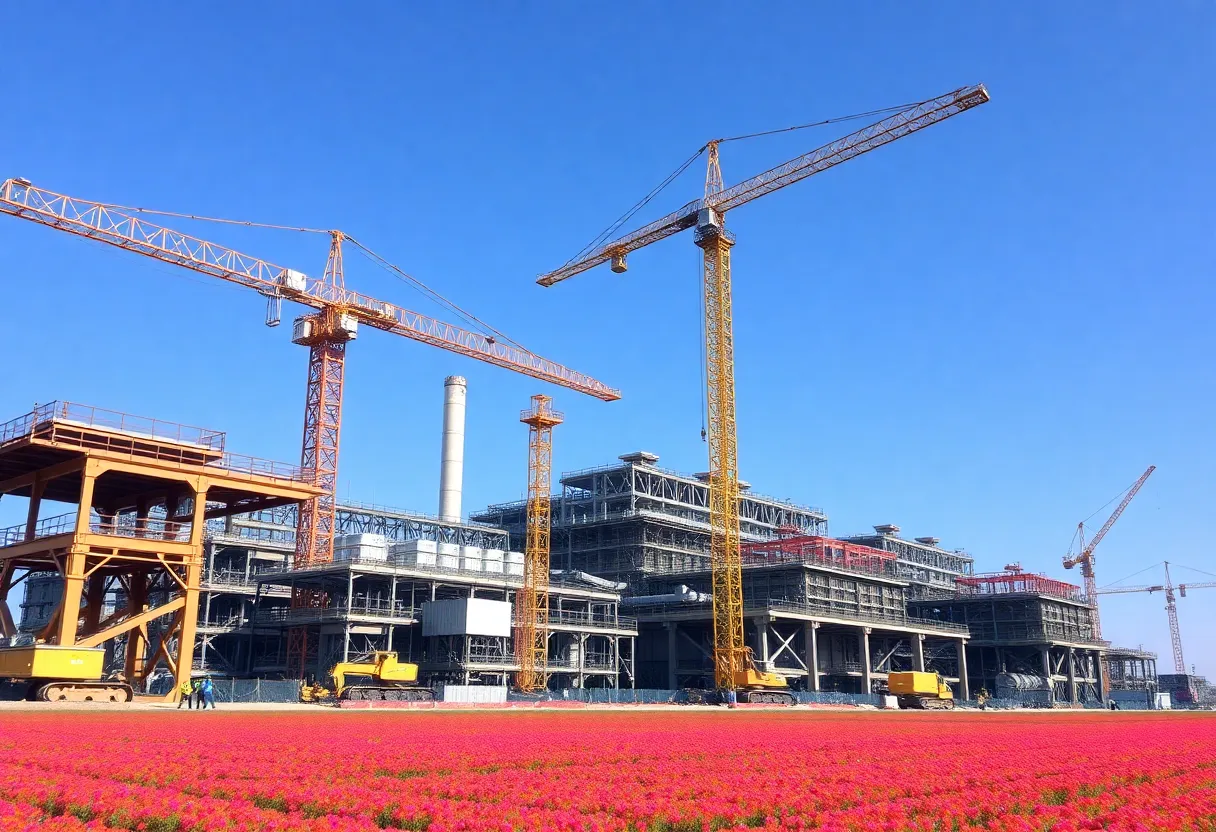News Summary
Texas businesses are facing challenges due to rising tariffs, which are expected to negatively affect their operations and profit margins. A recent survey by the Federal Reserve Bank of Dallas highlights the growing concerns among business owners about increased input costs and their potential impact on consumer prices. Small businesses and the housing market are particularly vulnerable. With significant job losses projected, the economic landscape in Texas appears increasingly unstable as businesses adapt to changing trade policies.
Texas businesses are increasingly expressing concerns over President Donald Trump’s tariff policies, which are contributing to a slowdown in economic activity in the state. A recent survey conducted by the Federal Reserve Bank of Dallas revealed that economic growth in Texas is continuing but at a rate slower than expected, amid heightened uncertainty stemming from these tariffs.
The Business Outlook Survey, which collected responses from over 300 Texas executives between April 15 and April 23—a period following the imposition of historically high baseline tariffs on all foreign goods—indicated a considerable level of anxiety among business leaders about the ongoing changes in trade policy. A significant 75% of respondents anticipated that the higher tariffs would adversely affect their business operations in 2023.
Furthermore, over half of those surveyed reported expectations for decreased profit margins and less favorable business outlooks. Many executives, about 66%, believe that tariffs will lead to increased input costs, forcing them to consider strategies for managing these expenses. More than half of the firms stated they plan to pass on additional costs to customers, while approximately 44% indicated they would absorb these expenses instead.
There has also been a notable increase in businesses expecting to be impacted by tariffs compared to previous years—60% of participants in the latest survey expressed concern, up from just 20% in 2018. Capital spending forecasts have likewise worsened, with 40% of respondents projecting a decrease, a significant rise from just 14% seven years ago. The survey data reflects a contraction in orders from Texas manufacturers following an earlier temporary surge in demand.
The service sector, which constitutes a major component of Texas’s economic landscape, has also shown signs of slowing activity, raising alarms regarding the ongoing stability of the state’s economy. Small business owners, particularly those relying on imported goods, are particularly anxious about the soaring prices driven by tariffs on everyday essentials.
For instance, business owners in specific sectors are voicing concerns about the impact on pricing for imported products. Rising costs of items such as cheese and wine due to tariffs could directly lead to escalated consumer prices. Similarly, the housing market is projected to suffer as tariffs on critical construction materials, including steel and aluminum, could inflate home prices. Experts estimate that tariffs could add between $17,000 to $22,000 to the price of new homes, posing challenges for homebuilders in a market characterized by high demand.
Predictive analyses, like those from the Perryman Group, warn of dire economic consequences if tariff rates remain unchanged, suggesting potential job losses of up to 370,000 and a decline of $46 billion in Texas’s GDP. Meanwhile, consumers are already feeling the pinch of rising prices, with 83% of Dallas adults reporting noticeable increases in grocery costs.
Concerns about tariffs are echoed in various sectors, with businesses like Faelo Group contemplating shifts in their supply chains and manufacturing strategies in anticipation of continued tariff pressures. U.S. Senator Ted Cruz has also voiced his worries about how tariffs burden consumers and has expressed hope that they will not be a long-term issue.
As Texas navigates these economic challenges, it is clear that the tariffs imposed by the current administration are prompting businesses to adapt, rethink their strategies, and prepare for an uncertain economic future. The feedback gathered from Texas executives underscores the widespread implications of these policies, reinforcing the need for a cohesive approach to trade that addresses both economic growth and financial stability in the state.
Deeper Dive: News & Info About This Topic
- NBC DFW: ATM Manufacturing Company Tariff Impact
- Wikipedia: Home
- FOX 4 News: Trump Tariffs Impact North Texas
- Google Search: Tariffs Impact
- WFAA: Caterpillar Tariffs $350 Million Cost
- Google Scholar: Impact of Tariffs
- CBS News: How Trump Tariffs Could Impact Cost of Groceries
- Encyclopedia Britannica: Tariffs
- NBC DFW: North Texas Businesses Brace for Tariffs
- Google News: Tariffs and Business
Author: STAFF HERE GEORGETOWN
The GEORGETOWN STAFF WRITER represents the experienced team at HEREgeorgetown.com, your go-to source for actionable local news and information in Georgetown, Williamson County, and beyond. Specializing in "news you can use," we cover essential topics like product reviews for personal and business needs, local business directories, politics, real estate trends, neighborhood insights, and state news affecting the area—with deep expertise drawn from years of dedicated reporting and strong community input, including local press releases and business updates. We deliver top reporting on high-value events such as the Red Poppy Festival, Georgetown Swirl, and Christmas Stroll. Our coverage extends to key organizations like the Georgetown Chamber of Commerce and the Downtown Georgetown Association, plus leading businesses in manufacturing and tourism that power the local economy such as local wineries and historic downtown shops. As part of the broader HERE network, including HEREaustin.com, HEREcollegestation.com, HEREdallas.com, HEREhouston.com, HEREgeorgetown.com, and HEREsanantonio.com, we provide comprehensive, credible insights into Texas's dynamic landscape.






